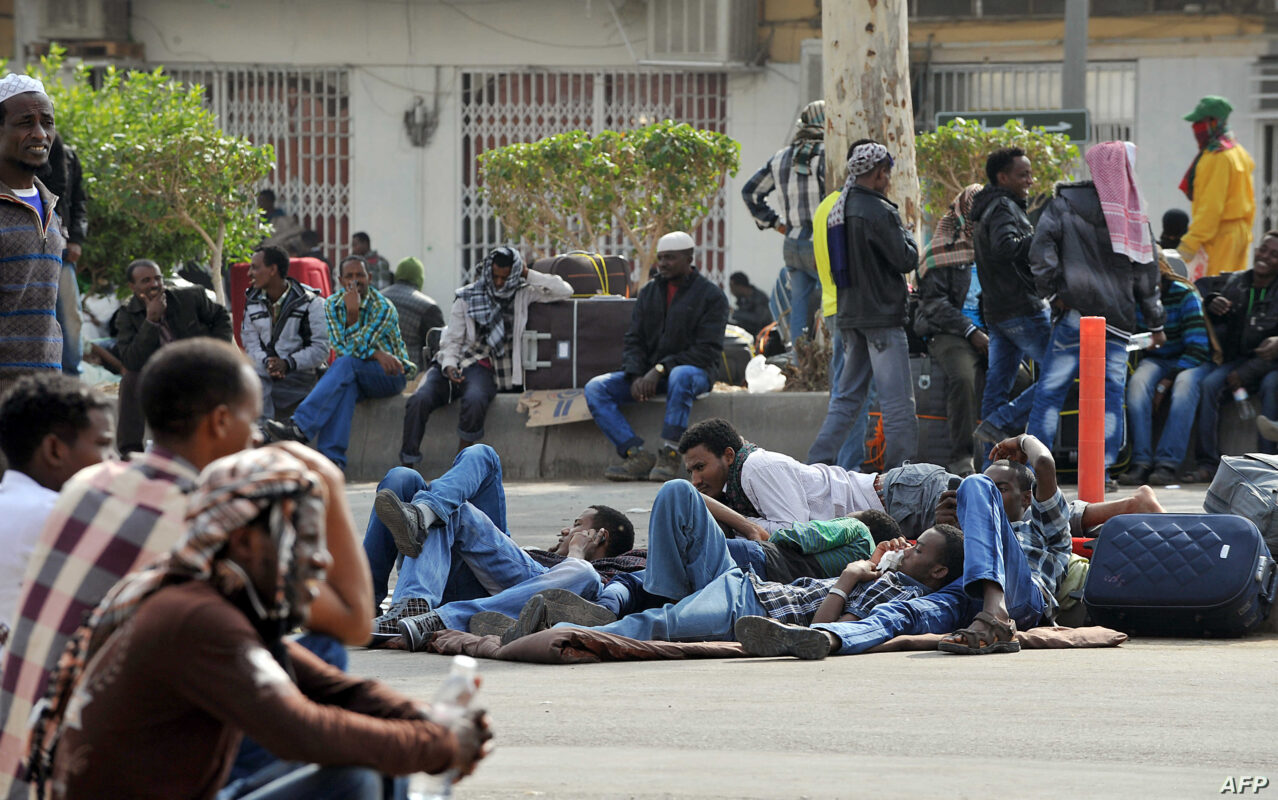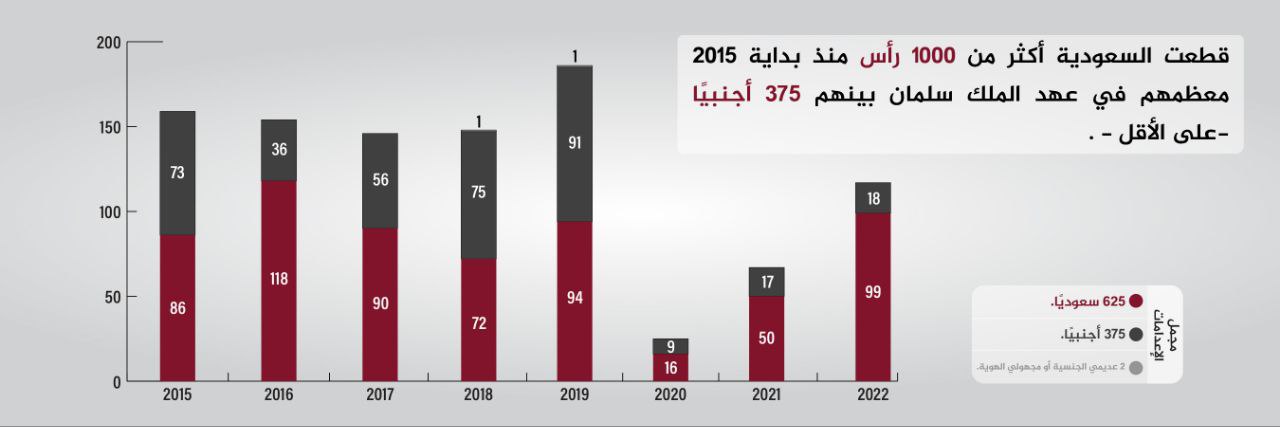
The European Saudi Organization for Human Rights presented statistics of death sentences carried out in Saudi Arabia against foreigners in recent years and the violations that they entailed.
In a conference held between April 7-10, 2022, that included organizations of the South Asia Network and the Middle East, ESOHR indicated that the numbers of executions of foreigners in Saudi Arabia constituted approximately 40 percent of the total executions carried out between 2015 and 2021.
ESOHR explained that according to the General Authority for Statistics in Saudi Arabia, 10 million non-Saudi residents live in the country, 3 million and two hundred thousand of them are domestic workers. From 2015 until the end of 2021, Saudi Arabia executed 361 foreigners of different nationalities. According to the organization’s documentation, the executed individuals had Pakistani, Yemeni, Syrian, Egyptian, Jordanian, Ethiopian, Nigerian, Chadian, Indian, Indonesian, Filipino, Iraqi, Sri Lankan, Sudanese, Iranian, Myanmar, Palestinian, Eritrean, Somali and Lebanese nationalities, Bahraini, Bangladeshi, Qatari, Kenyan, Djiboutian, Turkish, Afghani, and Mali nationalities.
The organization’s intervention indicated that before 2020, most foreigners who were executed were facing drug charges, especially of Pakistani nationality. These charges are not considered among the most serious in international law. However, despite fears of unfair trials and concerns surrounding foreigners' issues such as the possibility of human trafficking and others, Saudi Arabia has executed hundreds over the past years on drug charges. In January 2021, the official Saudi Human Rights Commission said that executions in drug cases had been halted, but without amending the laws, individuals facing drug charges, including foreigners, still face an unknown fate. According to information, 40 of them are Pakistanis.

The European-Saudi Organization tracked several execution cases of foreigners. According to the documentation, foreigners are subjected to many violations. In addition to the torture and ill-treatment practiced by the judicial system in Saudi Arabia, foreigners are subjected to exceptional violations. For example, lack of an interpreter, denial of the right to access families, denial of communication with a lawyer, and others. In addition, the organization pointed out that the suffering of the families of foreign workers continues even after executing the death penalty, with the policy of detaining the bodies practiced by the Saudi government.
The organization’s intervention indicated that in the absence of a law that stops permanently death sentences for drug crimes, it is still possible for the Saudi government to return to its implementation, in light of the lack of confidence in official promises, especially after the return of record numbers of executions carried out since the beginning of 2022.
